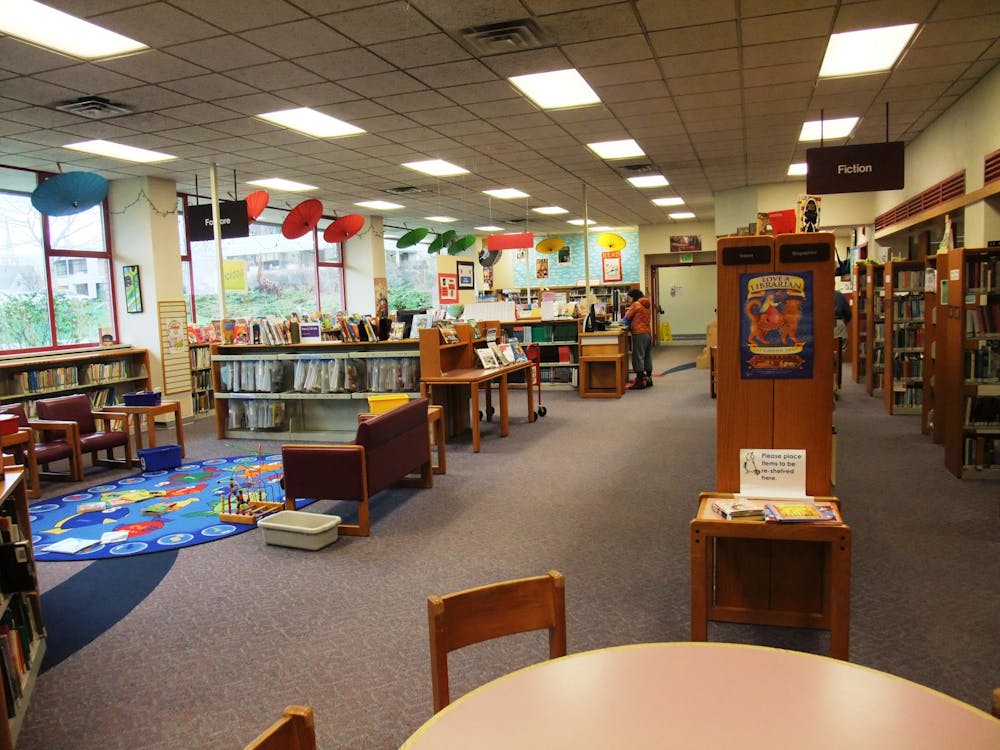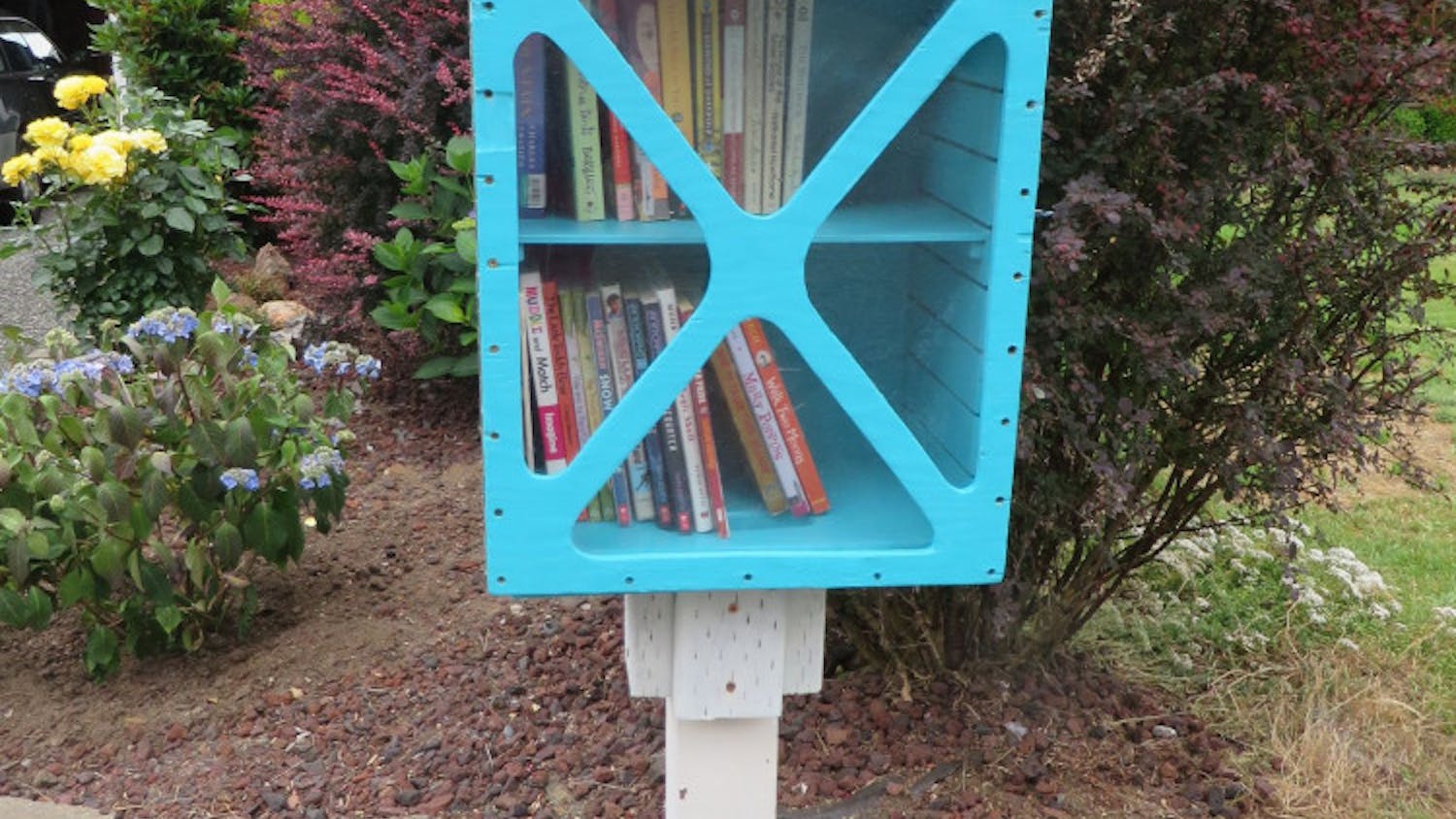The Bellingham Public Library kicked off its annual summer reading program on June 1. The program, which originally began in 1978 and was designed to inspire Bellingham residents of all ages to read, will continue until Sept. 1.
Additionally, the library’s website features summer reading cards for children from infancy to 5 years old and includes activity-based challenges that promote reading, singing, talking, playing and writing. Challenges include asking a librarian for a book recommendation, sharing a song with a family member, talking about a favorite book and writing a new word.
Bethany Hoglund, deputy director of the Bellingham Public Library, said the card is designed to “acknowledge the unique developmental needs of early learners, and build a strong foundation for learning and reading in children.”
For older children, teens and adults, the challenges that come with the reading card are different. Activities include tasks such as reading a new book, rereading an old favorite and recommending a favorite to a friend.
The challenges part of the 2021 reading program, however, look different than previous years in which participants were challenged to read a certain number of books or spend a certain number of hours reading.
Hoglund explained that the library’s goal was to move away from prescriptive challenges and awarding prizes for completing the summer challenges and instead encourage participants to “chart their own path” to discover what they are interested in learning about.
Adam Shaffer, a librarian at Bellingham’s Kulshan Middle School, said he thinks that having these challenges are fun and don’t feel like homework, and there are children who will do more summer reading because of it.
“Our focus is really to highlight the joy of stories and self-directed learning,” Hoglund said. “For many youth in school, their choice in what they learn about is small. Summer is their time to shape their inquiry. We like to tell students that just about anything they’re interested in or curious about they can learn about at the library.”
Hoglund also said that listening to audiobooks and podcasts, as well as reading magazines and other mediums are valid ways to access information. She added that including different formats to the summer reading program was another reason the program moved away from challenging participants to read a certain number of books.
Julie Hunter, a librarian at Wade King Elementary School in Bellingham, explained that school librarians like herself always encourage students to self-select books that interest them, as well as exploring different genres and subject matter.
“Sometimes kids may feel limited in school in their reading choices and don’t have time to read for pleasure,” Hunter said. “So this is a way to build those pleasure-reading muscles, and say, ‘Aren’t you lucky you get to read whatever you want for pleasure?’ That’s a habit we want to build as school librarians, and we rely on the public library to reinforce that over the summer.”
Jessica Miller is the mother of a fifth-grader who has participated in the summer reading program for the past two summers. Miller explained that her daughter enjoyed reading, but didn’t have as much time to read for pleasure during the school year. After hearing about the program two years ago during school, Miller’s daughter decided to participate and now plans to return this year.
“I love seeing my daughter get excited about reading over the summer,” Miller said. “Our public library is amazing; the librarians are helpful and have suggested some books she loved. Sometimes it seems like required reading in school can make reading into a chore, so I think it’s great to have a program that encourages kids to read whatever they enjoy.”
Both Shaffer and Hunter said they promote the summer reading program within their own schools and that a representative from the public library pays a visit to each of their schools to encourage student participation.
“Public librarians really carry the load during the summer to help provide access for students when they can’t get into the school library at that time, and we work together,” Hunter said.
Hunter explained that all Bellingham Public School students from kindergarten through 12th grade have a Bellingham Public Library account which grants them year-round access to the library free of charge.
Additionally, Hunter added that during the past year of COVID-19, in which school libraries were closed, her students’ usage of the Bellingham Public Library increased.
“It was really great to have parents realize that ‘Wow, my child has access to these databases, my child has a public library account,’” Hunter said. “So it was great to see students and parents be really happy about all the resources available to them through the Bellingham Public Library.”
Hunter added that another potential benefit of giving students public library access is that it teaches elementary students many important skills on how to handle an account.
“They’ve learned their logins and passwords and how to keep them secure and how to manage how many holds you have, and all of these are transferable skills into other online accounts you’ll have as you grow into adulthood,” Hunter said.
Schaffer also explained that many of his middle school students have taken advantage of their public library access during the pandemic to check out e-books and audiobooks.
“During the pandemic, many of my students took advantage of their public library account and easy access to books when the school was closed and really fell in love with reading and with the public library,” Shaffer said.
Paige Thibautis a second-year student at Western double-majoring in Journalism and Political Science. This is Paige’s first quarter on The Front and she is currently a city news reporter interested in covering all sorts of current events. When not reporting, Paige enjoys spending time outdoors or with her dog. You can contact Paige at paigethibaut.thefront@gmail.com.





